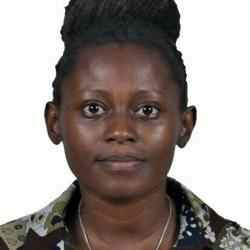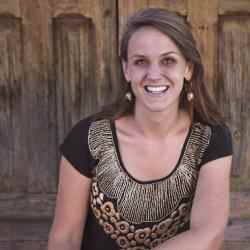Introduction
Recognising that the women’s movement in Sri Lanka needs a new generation of leaders post its deadly civil war, Shreen is creating a new cadre of young women that is bringing new solutions to overcome the socio-cultural inequalities that have long prevented women from exercising their citizenship in the country.
The New Idea
The women’s movement in Sri Lanka has reached a critical stage where the older generation of women leaders have exhausted their energies and ideas fighting against the structural discriminations against them during the war period, without having a second-generation leadership to carry the movement forward. Recognizing the high possibility of a dying movement, Shreen is creating the next generation of young women leaders from representing all identities--Muslim, Tamil, Sinhalese--that are working together to take the women’s movement in Sri Lanka from a mere survival mode to the next level of advocating for larger women’s rights.
The end of the 25-year old civil war in 2009 finally provided some stability and mobility for women which in turn created opportunities and spaces for them to work on broader women’s issues on a larger scale (rather than just survival during the war). Using this opportunity, Shreen started to identify, mentor, and provide platforms to younger women throughout the entire North and the East of the country. She brought together a collective of 9 women’s groups and named it the Women’s Action Network (WAN) using the links of Mannar Women’s Development Federation, which Shreen founded in her hometown in 1998, for this. WAN not only firefights individual cases against traditional women’s issues like domestic violence and war-related issues like enforced disappearance and resettlement, but also advocates at a national and international level for policy reforms.
One unique dimension to WAN’s work is the active inter-ethnic collaboration that the network deliberately works on, cutting across the deep boundaries that the civil war created. The network looks at issues not isolated to a Tamil, Muslim or Sinhalese issue, but from the lens of a larger universal women’s rights. For example, the young Tamil, Muslim, and Sinhalese women now are together reforming the highly discriminatory Muslim Personal Law that exists in Sri Lanka, seeing it as the fundamental rights of all women, and not a Muslim women’s issue.
The Problem
In Sri Lanka, the violent nature of the civil war from 1983-2009 resulted in an entire generation of youth growing up without knowing how a peaceful society and its various systems work. Even though there were a few women organizations that sprung up to initiate the women’s movement during 1990-2010, the biggest challenge the women’s movement in Sri Lanka is now facing is the lack of a competent next generation of leaders..
During the war, the women’s movement in Sri Lanka went underdeveloped due to continuous surveillance and attacks on the women groups, not just by the Sri Lanka military, but the LTTE (Tamil militants) as well. For example, many women organizations and many others were constantly displaced due to the war or faced war related atrocities. So, while there were a few women groups supporting women, the movement merely functioned addressing the day to day issues and never went on to the next level. In addition to the war-related issues, the women’s rights movement was also impeded by many religious and cultural discriminatory laws and practices against women that exist in Sri Lanka. For instance, while the Muslim Marriage & Divorce Act (MMDA) allows multiple marriages by Muslim men without registration, it also sets no minimum age for girl’s marriage and allows the husband to divorce the wife without any reason but not vice versa. On the other hand, the Thesavalamai Law does not allow a Tamil married woman to transfer her dowry property without the consent of her husband even when they are separated. Such laws continue to exist even though the laws violate CEDAW (Convention on the Elimination of all forms of Discrimination Against Women), the international treaty adopted by the UN and signed by Sri Lanka and 188 other countries.
Moreover, there could never be a “united” women’s movement between the Tamil, Muslim, and Sinhalese communities during the war as it had created deep divisions that resulted in a legacy of mistrust and non-cooperation between them. For example, in cases of rape and sexual torture of many Tamil women including LTTE cadres by the State military in the last bit of the war, the Sinhala and the Muslim women took a backseat or never even raised a collective concern. These war-related serious crimes against women have been reduced to ethnicity or region and often time dismissed or muted in the interest of defeating terrorism in the country. The women’s groups have also very rarely stood up against growing Sinhala hegemony and religiosities in the post war context.
The end of the war in 2009 opened some spaces for reconciliation and taking up larger women’s rights work. At a time when the new government in Sri Lanka is undertaking constitutional reforms and establishing Transitional Justice (TJ) mechanisms, including women’s voices into every action that the government takes becomes imperative and the need of the hour, if Sri Lanka has to truly build into a nation of equal rights for women.
The Strategy
Shreen firmly believes in the creation of the next generation of young women leaders across the hierarchy to make the women’s movement sustainable and to take it from a mere survival mode to a level where their voices are included in every development that takes place in a post-war Sri Lanka.
From 1998-2009, Shreen worked extensively on multiple women issues like rape by state forces, child recruitment by the LTTE, disappearance, resettlement, trust building between the Muslims and Tamils, etc. through her own organization as well as working with many other scattered women leaders in the North and the East of the country. However, Shreen noticed how difficult it was for women’s organizations to operate due to the adverse effect of the war, and how draining it was for the women leaders of the time to fight against the atrocities without having any second-line leadership, or a strong movement backing them. Shreen’s own organization had to dissolve multiple times and the co-founders had to flee to foreign countries due to threats from the state intelligent units and LTTE.
With the end of the war providing some mobility and safety to women, Shreen knew it was the right time to take up larger women’s rights work and expand the reach of the women’s movement to the entire country. Shreen facilitated the founding of many organizations over the North and the East involving young women leaders from the community to take charge of women’s issues, knowing that this would be a crucial step in building a sustainable and a larger women’s movement. Currently, there are 9 organizations (most of them led by the peer group that Shreen has hosted together to form WAN) spread across the 9 districts of the North and the East, with one organization anchoring the efforts of WAN in each war-affected district. WAN is focused on tackling the traditional gender-based violence issues like domestic violence, sexual violence, discriminatory law reforms specially Muslim Personal law, etc.; and post-war issues like land occupation, enforced disappearance, resettlement, war related disability of women, promoting coexistence and establishing Transitional Justice (TJ) mechanisms.
For instance, Muslim Women’s Development Trust (MWDT) established through the assistance of Mannar Women’s Development Federation in 2012 in Puttalam (Muslim dominated region) has been now led by young women leaders who have taken a lead role in reforming the heavily discriminatory Muslim Marriage & Divorce Act 1951 (MMDA). MWDT has created a “changemaker volunteer program” in every village of their district, through which a team of teenage women volunteers from the community take up cases related to Muslim Personal Law (around 800 every year), sit in the Qazi court (Muslim court) hearings for the first time, document evidence, and advocate for law reform through the media involving their community male leaders. The young women have also collaborated with the “Gender-based Violence” (GBV) forums in Puttalam through which they conduct once-a-month training sessions for the police, doctors, lawyers, etc. on how to deal with women’s issues. As a result, the police have started conducting sessions in the community to spread awareness on how to approach them. Like MWDT, all the other organizations of WAN have also been able to build collaborative support mechanisms for the women, with the other stakeholders in society, like the police, medical professionals, lawyers, international bodies, etc., who extend their support for individual cases and also work to improve policies and implementation of women’s rights framework at a systemic level.
Shreen’s work over the 2000s in re-building trust between the Muslim and the Tamil communities by creating spaces for conversations, mutual grievance sharing, economic development (Shreen established the largest micro-credit program for women in the north through Mannar Women’s Development Federation in 1999) etc. laid the foundation for WAN to become a “united” network of Muslim and Tamil youth activists in the country, that takes up women’s issues not isolated to an ethnicity, but as fundamental women’s rights. For example, in one of the incidents of rape of a Tamil woman, 7,000 women took to streets to protest, many of which were Sinhala and Muslim women, and the man was arrested the next day. It is this common mission that has turned WAN into a network that cuts across the deep boundaries the war had created, and leverage the power of the collective to tackle women issues.
WAN is a very loose network as it does not have an office, but only an identity. The identity is very useful to all the individual organizations. For example, none of the organization or the individuals reveal their representative organizations when taking any high-profile case (example, rape case against military) as the government can easily shut their operations down. Instead, any organization or any lawyer taking up a case says they are representing WAN, which then becomes intimidating for the other party as it now represents a much larger movement. It is because of this feeling of common identity that WAN now is able to mobilise women across the country overnight, if needed. WAN’s powerful identity has become a brand now that more and more young women want to associate with and form organizations of their own.
Shreen believes in including young women leaders in every level of the women’s movement, and is making sure that more and more young women take up international advocacy work, something that she has been actively involved for many years. For example, Shreen has been accompanying young women rights activists to take part in the international review process like ESCR, UPR, HRC and CEDAW.
Shreen is now looking to work with more young women groups and extend WAN’s reach in the South. She takes sessions in government universities, schools, youth clubs, etc. to make sure the younger generation are always aware of the state of Human Rights in their country and take up these issues when they grow up. In the future, Shreen also wants to build a “wellness center” that can be used by any women activist to take shelter during times of exhaustion or extreme risk, so that when they come out, they come out with renewed strength and power.
The Person
Born in 1969 to a Muslim family in Mannar, Shreen grew up in a multi-religious neighborhood where Tamils and Muslims had coexisted peacefully for generations. Shreen’s all-time favourite person growing up was her father’s close friend, Uncle Chris, a proud Tamil nationalist but a very close friend of their family. In 1985, 2 years after the civil war started between the LTTE and Sri Lankan State military, Shreen found Uncle Chris’s dead body hung to a lamp post in front of their house, with a sign hanging from his neck that read “TRAITOR”. He had been shot by the LTTE (Tamil militant group) because of his connections with the Muslim population who were now perceived as informers to the military .
In 1990, Shreen’s family, along with 75,000 other Muslims, was forcibly evicted from the Northern province, including her home town Mannar, at gunpoint by the LTTE. This was for the first time that the war hit home for Shreen. In the refugee camps where the Muslims stayed, Shreen participated very actively in the community organization her father set up to assist the refugees, raised funds, and learnt from him various strategies for grassroots organizing. When Shreen’s father died soon after, she took over as the head of the family at the age of 21, and got a job as a stock broker to support the family.
Shreen continued her human rights work in the North and East of the country but found it very difficult to go to different war-affected areas due to military control. She then joined the Canadian International Development Agency (CIDA) in 2002 and used international humanitarian work to gain access to these areas and continued supporting the women through raising funds. During this time, she met many women leaders and learnt the difficulties women’s groups faced on the ground to continue their fight for justice in a war environment. Shreen understood that the war had eliminated the possibility of including the younger generation of women into the women’s movement or any form of collective women’s rights activism, and if the movement had to become sustainable, she would have to create an entire generation of young women leaders to take lead in it. That’s when the idea of WAN was born which Shreen started formally working from 2009 onwards.

 Tile image
Tile image

